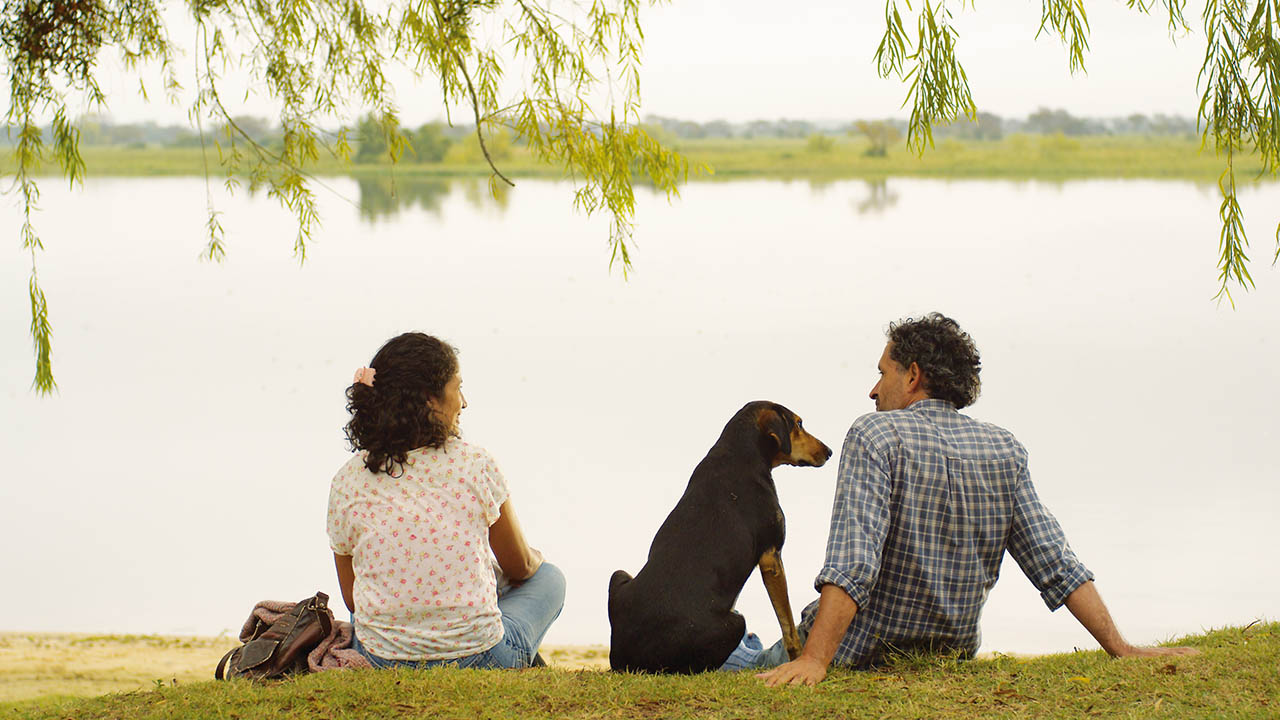
Dir: Pablo Giorgelli | Cast: Hebe Duarte, German de Silva | 82’
Las Acacias is both a ‘road movie’ that eschews genre conventions (both violence and stunning scenery is absent) and an embryonic romance (its slow-burning fuse signposts a love interest at the end of the film.) And nearly all the action in its modesr running time is confined to the interior of a truck carrying three characters.
Ruben (German de Silva) is a middle-aged truck driver transporting timber between Paraguay and Buenos Aries. Ruben is asked by his boss to take a young Paraguayan woman Jacinta (Hebe Duarte) to Buenos Aries. She meets him at the truck stop, accompanied by her 5 month old daughter Anahi (Nayra Calle Mamani). At first Ruben and Jacinta make little conversation. Gradually their apprehension and resentment melts away as they begin to connect. Jacinta, with her three month visa, is hoping to get a job in Buenos Aries; the assumed long-divorced Ruben, estranged from his grown-up son, starts to emotionally open up. By the end of their journey the barrier of loneliness is lifted and there’s a suggestion of a future relationship.
De Sica’s Bicycle Thieves has one of the simplest stories in all cinema. A working class man loses the bicycle he needs for his new job. He and his son wander the streets of Rome looking for it. A sparse plot. Yet Las Acacia’s story is even more minimal than Zavantini’s scenario for De Sica. It has a classic simplicity that’s cut right to the bone, and excludes social critique (Though our brief glimpse of the face of the border guard, after Jacinta’s bags have been checked, speaks volumes about a suspicious authority.)
Las Acacias is a three-hander with a tiny amount of dialogue, employing looks, gestures and body language to communicate deeper needs. Their breaks in the journey (halting at a roadside café where Ruben tries, but fails, to get bus tickets for his passengers and get shot of them) and a brief scene of Jacinta chatting, round by the parked trucks, to a young man (causing Ruben to feel jealous and insecure) can hardly be considered substantial sub-plots, more carefully considered dramatic pauses.
Las Acacias presents a very clear trajectory: an acknowledgement of repressed feelings, dismantling of defences and the opening up to change from a chance encounter. This doesn’t make for a slight film. No Bicycle Thieves tragic intensity. But a powerfully warm-hearted work of acute social observation. We come too really like and care for Ruben and Jacinta. There’s a lovely little ‘break’ scene where they are sitting by a river bank and a dog joins them. They simply say that they like dogs and then curiosity slowly blossoms. Such recognition of human affection is done with beguiling humility.
Technically the film has a hard job to do – evoke the rhythm and tempo of being on the road so as to engage the viewer. This is achieved with great sensitivity, so that we come to feel very comfortable inside the truck. Giorgelli’s deft positioning of the camera creates the pleasurable illusion that each of us is a welcome passenger on this journey.
Beautifully cast (even the little baby charms us) and directed, Las Acacias is ordinary life made radiant in the moment. Its heart is not on its sentimental sleeve but quietly and gently, in the most filmically understated manner, stealing our attention. Las Acacias is a humanist delight, proving you can make wonderful films with either a lost bicycle or a found truck. ALAN PRICE©2018
NOW OUT ON BLURAY COURTESY OF VERVE PICTURES